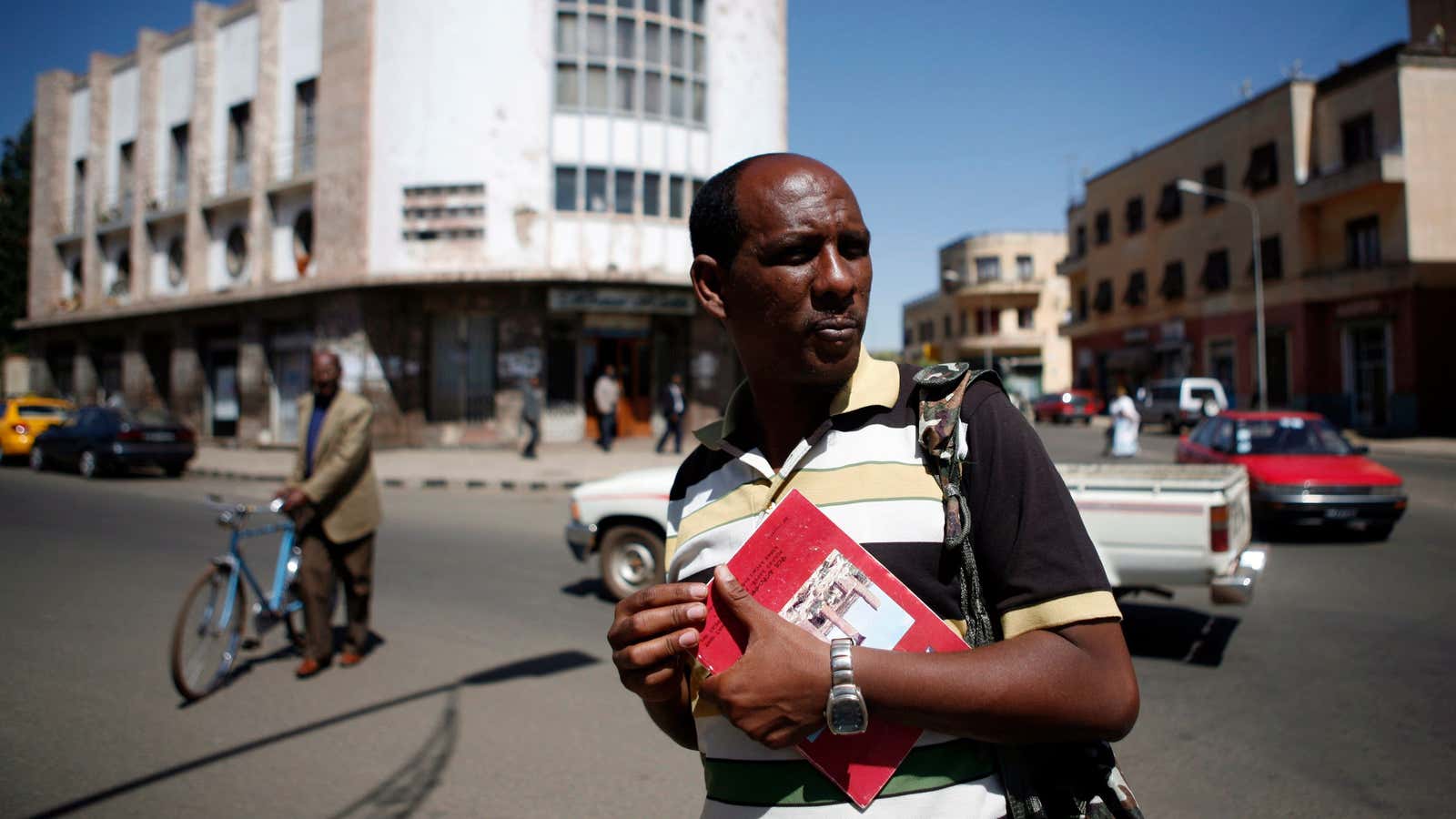Up until 1993, Eritrea was not even a nation. But since then, the Horn of Africa country has been in the news for all the wrong reasons: for its repressive, one-party state; for its forced conscription and “slave labor”; for the exodus of its people across the Sahara and the Mediterranean and into Europe and Israel; and for the government’s exploitation of the diaspora through coercion and tax levies.
But Eritrea was also in the news for its two-decade feud with neighboring Ethiopia, a conflict that killed about 70,000 and led to years of no-war, no-peace stalemate even after the signing of a 2000 peace deal. That came to an end this week when Ethiopian prime minister Abiy Ahmed made a historic gesture by flying to the Eritrean capital Asmara. Following warm hugs and smiles with president Isaias Afwerki, the two leaders announced the end of the “state of war,” declared that trade and flights would resume, and restored phone connections. Isaias also flew to Addis Ababa today to dancing and cheers from large crowds.
As the two nations embark on this new chapter, here are five books that explore Eritrea’s past and present—and offer a glimpse of its imminent future.
Brothers at War by Tekeste Negash and Kjetil Tronvoll
Eritrea and Ethiopia amicably separated after a vote in 1993. But that decision left Ethiopia landlocked, kick-starting a bitter rivalry and raising questions over national pride and regional dominance. The unrest helped catalyze a war that erupted over the town of Badme in May 1998, which both sides claimed as their own. This book helps explain the historical and ideological factors that led to this costly conflict that ended in June 2000.
I Didn’t Do It for You by Michela Wrong
If there’s one book to read about Eritrea, it is this deliciously-written book by British journalist Michela Wrong. Mixing dogged reporting, personal experiences, and extensive research, this book captures Eritrea’s past through the rise of fascism in Italy, its plundering by the British, its betrayal by the United Nations, its resistance battle against Ethiopia during the Cold War through to independence. Basically, Wrong shows us how the story of Eritrea encapsulates the history of the 20th century.
My Father’s Daughter by Hannah Pool
You are living your life in a faraway nation when you receive a letter from someone claiming to be your brother. How does one respond to that? After years of putting it away, Pool, who was adopted from an orphanage in Eritrea, decides to respond to that letter on her 30th birthday. This memoir shows a different and human side of Eritrea, one of longing, family, and the author’s reunification with her country of origin.
Understanding Eritrea by Martin Plaut
How did the Eritrean People’s Liberation Front, a promising independence movement, turn into a secretive dictatorship? How did one of Africa’s youngest nations become the continent’s hermit kingdom? How have the government’s policies of autarky diminished Eritrea’s economic and political future? And how has domestic repression affected the nation’s young, who have continued to vote with their feet? Plaut, a former Africa editor of the BBC who has covered the country extensively, provides lucid answers to some of these pressing questions.
Eritrea at a Crossroads by Andebrhan Welde Giorgis
Giorgis was a former insider of the EPLF regime until he broke with the party in 2006. Turning a critical eye on the administration, Giorgis blames president Afwerki for the nation’s failures, the diminishing of civil rights and liberties, and the eventual downfall of Eritrea from a hopeful democracy to a poor, isolated nation.
